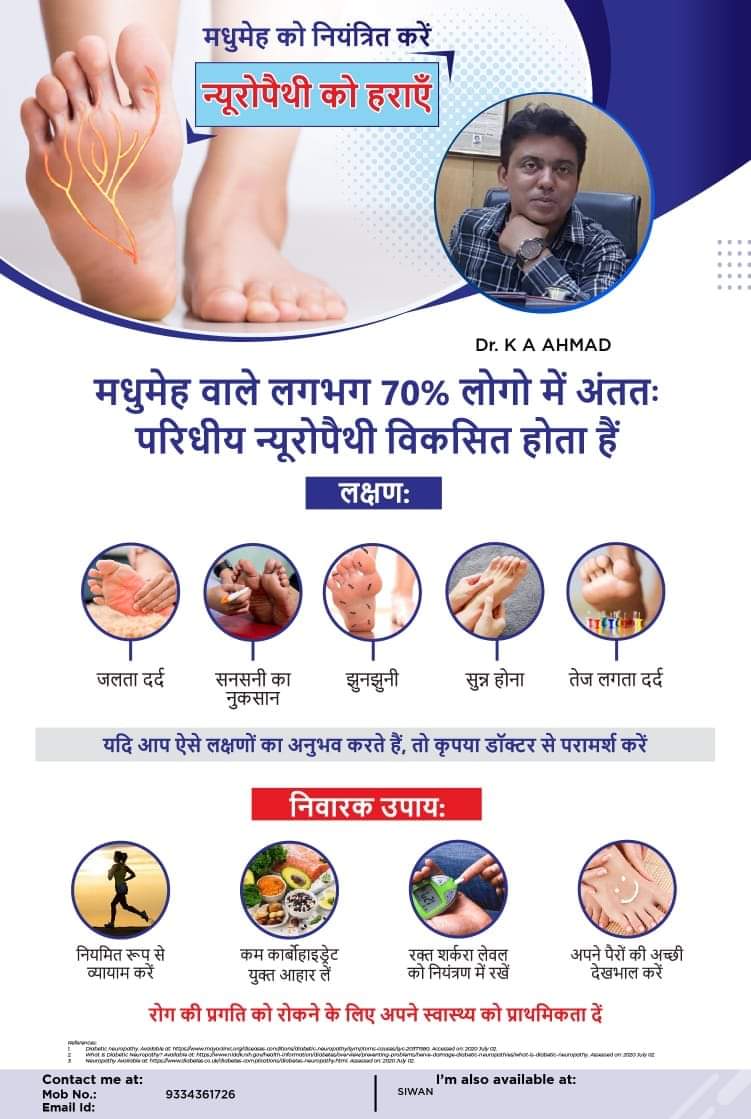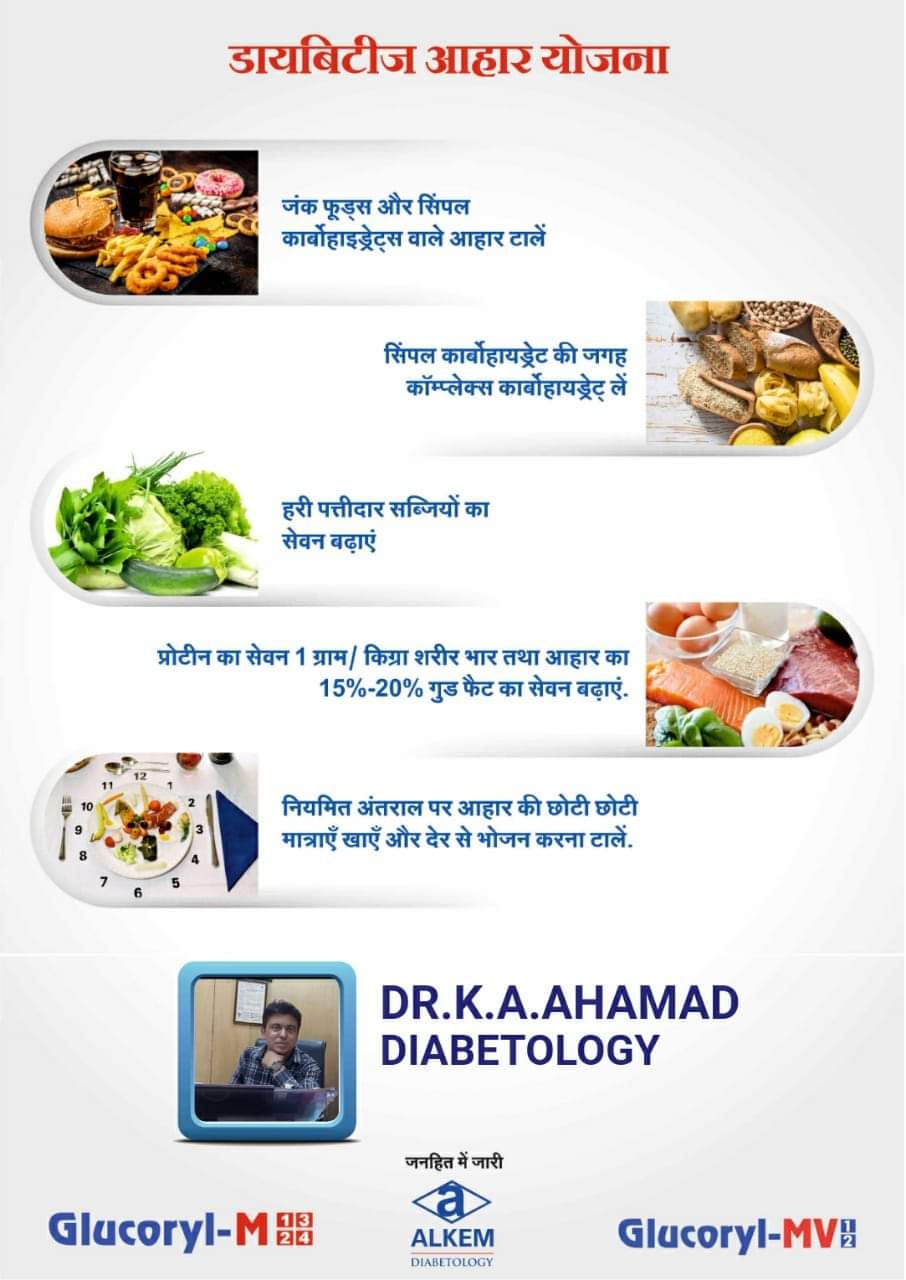Diabetes is a disease that occurs when your blood glucose, also called blood sugar, is too high. Blood glucose is your main source of energy and comes from the food you eat. Insulin, a harmone made by the pancreas, helps glucose from food get into your cells to be used for energy. Sometimes your body doesn’t make enough—or any—insulin or doesn’t use insulin well. Glucose then stays in your blood and doesn’t reach your cells.
Over time, having too much glucose in your blood can cause health problems. Although diabetes has no cure, you can take steps to manage your diabetes and stay healthy. Sometimes people call diabetes “a touch of sugar” or “borderline diabetes.” These terms suggest that someone doesn’t really have diabetes or has a less serious case, but every case of diabetes is serious.
Diabetes affects just about everyone, from the over 110 million Americans with or at risk for the disease to the many more people who care for them.
When blood sugar (glucose) level in the body rises from normal to higher it is commonly known as diabetes. In medical terms it is called as hyperglycaemia or type 2 diabetes.
diabetes is the most common form of diabetes. To understand more, every human body release insulin through pancreas to maintain the glucose level present in the body however if body resists the effect of released insulin (also called as insulin resistance) or does not produce enough insulin to control the glucose level it is nomenclated as diabetes.
Our centre has been treating diabetes for more than 25 years. We have an illustrious track record of treating diabetes from an initial stage to the most chronic ones.
diabetes have to take insulin regularly as part of their treatment, because their pancreas cannot produce insulin anymore. The most prevalent way to get insulin into the body up till now has been the injection with a needle. The most recent development in this area is Insulin Pump.
Our centre is the first centre of Northern India to give Insulin Pump Therapy to patients. We have highly skilled medico-technicians for offering this service.
-Type-1 Diabetes
-Type-2 Diabetes
-Gestational Diabetes
-Thyroid Disorders
-Metabolic Disorders
-Obesity Treatment
-Diabetic Foot Management
-Growth Disorders
-PCOD/PCOS
-Lipid Management
-Diet Management
-Endocrine Disorders
-Neurological Problems
-Infertility
-Erection Problems
-Hypertension
-Pituitary Diseases
-Insulin initiation
You are more likely to develop type 2 diabetes if you are age 45 or older, have a family history of diabetes, or are overweight. Physical inactivity, race, and certain health problems such as high blood pressure also affect your chance of developing type 2 diabetes. You are also more likely to develop type 2 diabetes if you have prediabetes or had gestational diabetes when you were pregnant.
Learn more about risk facors for type 2 diabetes..
Over time, high blood glucose leads to problems such as
heart disease
stroke
kidney disease
eye problems
dental disease
nerve damage
foot problems
You can take steps to lower your chances of developing these diabetes-related health problem diabetes related health problems.
Gestational diabetes develops in some women when they are pregnant. Most of the time, this type of diabetes goes away after the baby is born. However, if you’ve had gestational diabetes, you have a greater chance of developing type 2 diabetes later in life. Sometimes diabetes diagnosed during pregnancy is actually type 2 diabetes.
Less common types include monogenic diabetes, which is an inherited form of diabetes, and cystic fibrosis-related diabeted External link.
As of 2015, 30.3 million people in the United States, or 9.4 percent of the population, had diabetes. More than 1 in 4 of them didn’t know they had the disease. Diabetes affects 1 in 4 people over the age of 65. About 90-95 percent of cases in adults are type 2 diabetes.1
You are more likely to develop type 2 diabetes if you are age 45 or older, have a family history of diabetes, or are overweight. Physical inactivity, race, and certain health problems such as high blood pressure also affect your chance of developing type 2 diabetes. You are also more likely to develop type 2 diabetes if you have prediabetes or had gestational diabetes when you were pregnant. Learn more about risk facors for type 2 diabetes..
Over time, high blood glucose leads to problems such as
heart disease
stroke
kidney disease
eye problems
dental disease
nerve damage
foot problems
You can take steps to lower your chances of developing these diabetes-related health problem diabetes related health problems.

